Essential Oil Safety 2e and safety guidelines
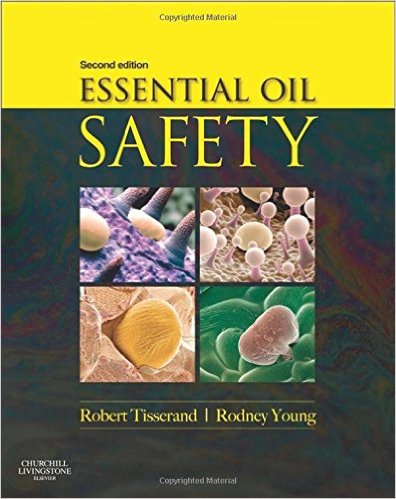 Essential Oil Safety 2e contains the most comprehensive and up-to-date list of hazards present in essential oils, but it’s very much more than a “list”. Along with my co-author Rodney Young PhD, I looked at all the available toxicology research and catalogued the hazards associated with individual essential oil constituents, as well as whole essential oils. We then took those hazards into account when establishing the risk present in using essential oils. We then set safety guidelines, with the goal of minimizing that risk. We explain why each limit is set, outlining the potential hazards, where known or suspected, for 400 essential oils.
Essential Oil Safety 2e contains the most comprehensive and up-to-date list of hazards present in essential oils, but it’s very much more than a “list”. Along with my co-author Rodney Young PhD, I looked at all the available toxicology research and catalogued the hazards associated with individual essential oil constituents, as well as whole essential oils. We then took those hazards into account when establishing the risk present in using essential oils. We then set safety guidelines, with the goal of minimizing that risk. We explain why each limit is set, outlining the potential hazards, where known or suspected, for 400 essential oils.
Knowing WHY it is recommended to limit the use of a given essential oil helps you, the essential oil user, accurately weigh the risk and benefit in using this oil in your practice. Let’s unpack the factors involved in assessing the safety of Nutmeg (or any other) essential oil:
Hazard vs. risk
Hazard is the potential of a substance to cause harm, while risk is the likelihood that harm will actually be caused in a given scenario. So a hazard might be skin irritation, neurotoxicity or carcinogenicity. Risk considers hazard, but also considers dose or dilution, frequency, mode of application, and ‘host factors’ such as age and health status. Understanding the difference between hazard and risk is crucial for any safety assessment, and is a core part of the Tisserand Institute’s safety education. Look here and here for more detail on this subject.
Risk vs. benefit
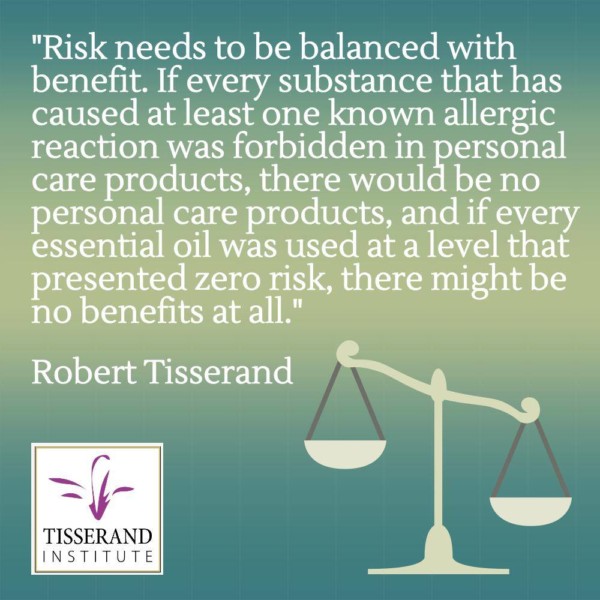 A related but separate issue is that essential oil use is always a careful balance between potential risks and benefits. Following safety guidelines ensures minimal risk, as they take the hazard already into account, while enjoying all the potential benefits.
A related but separate issue is that essential oil use is always a careful balance between potential risks and benefits. Following safety guidelines ensures minimal risk, as they take the hazard already into account, while enjoying all the potential benefits.
It’s the dose that makes the poison
If I tell you that a substance will cause severe internal bleeding causing a slow and painful death, your first instinct might be to stay away from it. But what if I tell you that this substance is water? Yes, even water has a theoretical lethal dose, and so do essential oils. That doesn’t mean we should stop drinking water, or using essential oils. It just means we need to be aware of what can happen if we use more than is recommended as a safe dose.
Zero tolerance for carcinogens?
It would seem to make sense to avoid anything containing a known or suspected carcinogen, wouldn’t it? But that would mean no longer consuming alcohol (formaldehyde), tea (benzopyrene), coffee (acrylamide), fruit juice (acetaldehyde), water (lead), pesto (methyleugenol), or just about anything else. Carcinogens are ubiquitous, but for the most part they are present in extremely low concentrations, and our bodies deal with them efficiently. Some carcinogens are even produced during normal food metabolism. Also, most of these substances are not known to cause cancer in humans, nor are the foods or essential oils that contain them. This is an important point for foods, which frequently contain an abundance of antioxidant, antitumoral, antitoxic substances too. While alcohol does have known risks and limits, tea, coffee, fruit juice, water and pesto are considered safe to consume.
More on this theme here and here.
Essential oils are less complex than foods, and a few do contain worrying amounts of potentially toxic constituents. When we don’t know the effect of the whole essential oil, estimating risk based on constituents makes sense. See here for an infographic dedicated to this issue.
Nutmeg oil
There are two types of Nutmeg oil, East Indian and West Indian, and they contain quite different amounts of two substances (safrole and methyleugenol) that can cause liver tumors to form in rats when used as single chemicals. Neither type of Nutmeg oil has been tested for cancer-causing activity using a standard animal testing procedure. However, Nutmeg oils show antimutagenic activity, suggesting that the whole essential oil could even be anti-carcinogenic. This could be partly because Nutmeg oils also contain d-limonene, an antitumoral constituent. However, since we don’t know for sure the effect of whole Nutmeg oil on humans, some precaution is appropriate. The safety guidelines in Essential Oil Safety 2e take into account a significant body of toxicological research, including differences in metabolism between rodents and humans, and assumes the maximum concentrations of the two rodent carcinogens. It’s also worth noting that Nutmeg oil has GRAS status in the USA, meaning it is considered safe to use in food flavorings.
Conclusions
So, should you toss your Nutmeg oil? That’s up to you. I believe the science shows that Nutmeg oil is safe to use topically if diluted according to these safety guidelines, and is safe to diffuse in moderation. If you follow the Tisserand Institute, you will know that the safe – and efficient – use of essential oils is at the heart of our mission. You will also know that safety is rarely an “always or never” scenario, and that to establish whether something is or isn’t safe, a great deal of context needs to be given. I hope that what I have briefly touched on here uncovers some of the complexity in safety assessment. Safety is not a black and white issue, and I feel that a sweeping restriction of Nutmeg essential oil is a misleading oversimplification.
General safety guidelines for essential oils can be found here. 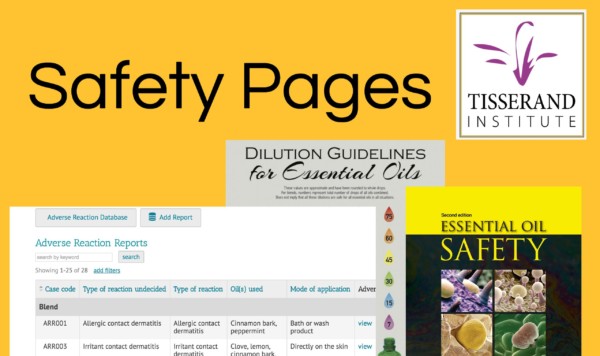

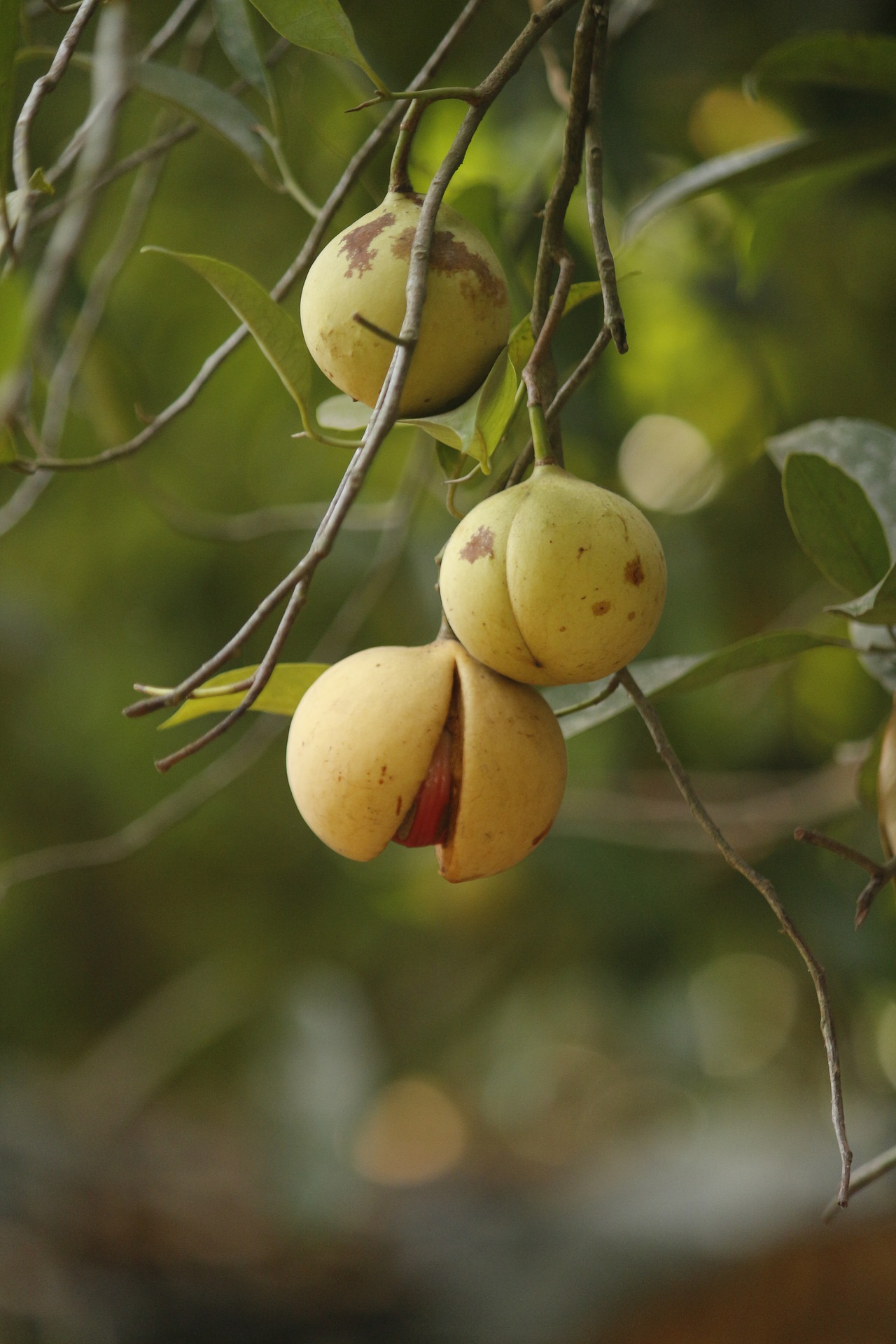
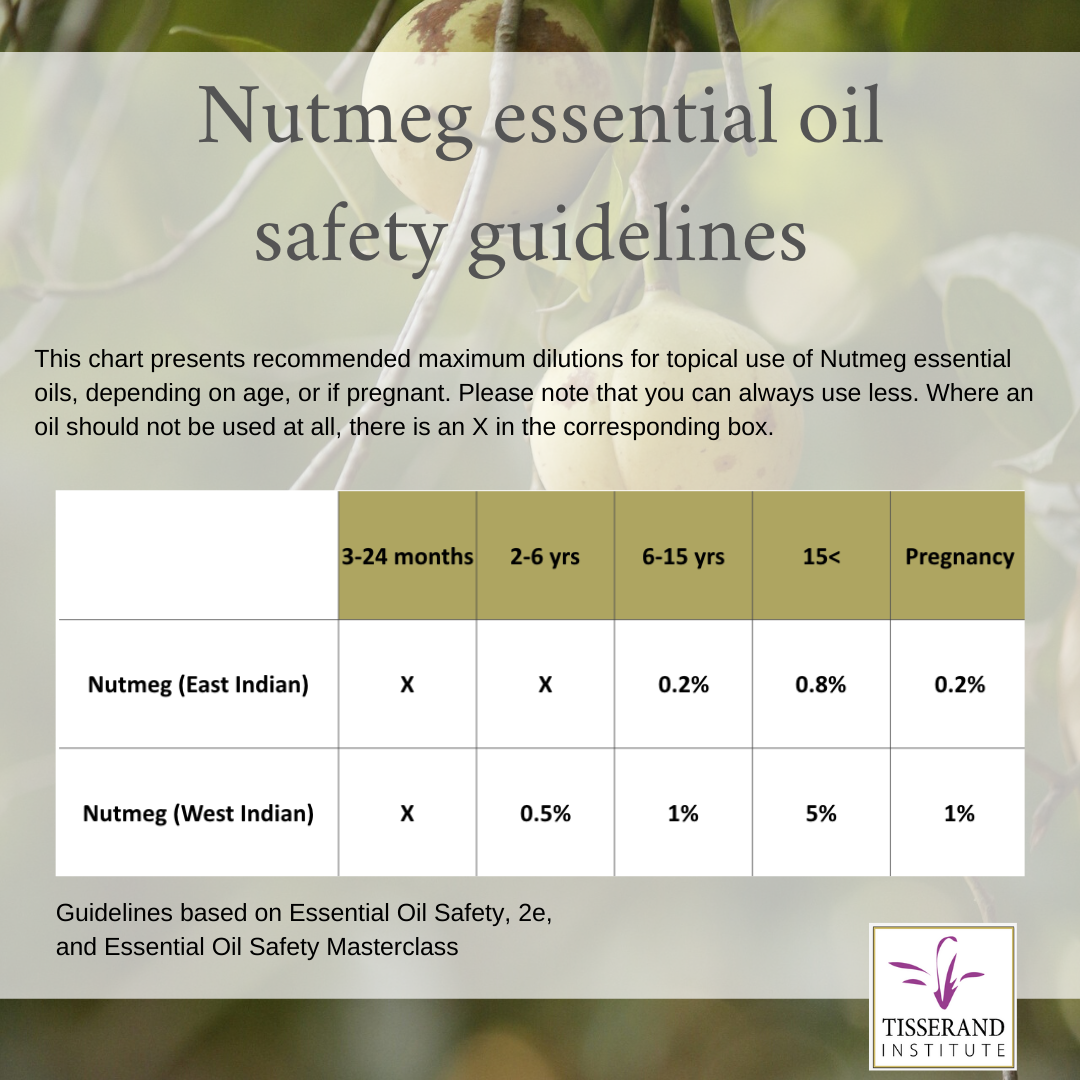

Thanks for the information !! What about diffusing nutmeg oil..
“I believe the science shows that Nutmeg oil is safe to use topically if diluted according to these safety guidelines, and is safe to diffuse in moderation.”
Thank you so much for this balanced and informative article. Reassuring to know nutmeg is likely safe if used in moderation/safely diluted.
You are most welcome, Joy. 🙂 ~Shane Carper